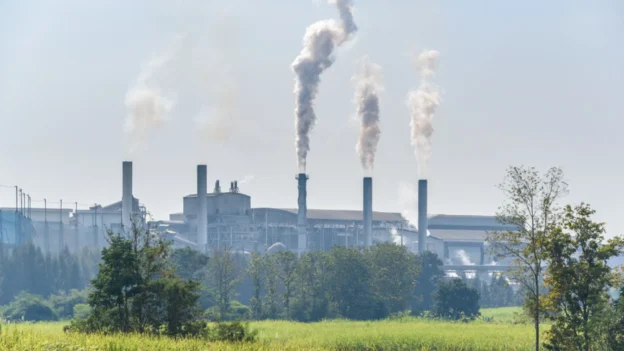The U.S. state of Vermont has passed a law requiring oil companies to bear the costs of damage caused by their emissions, becoming the first U.S. state to implement such legislation. In detail, the new regulation known as S.259,“An Act relating to climate change cost recovery,” became law without the signature of Vermont’s Republican Governor Philip B. Scott.
New Vermont law for oil companies
The legislation requires the state treasurer, in collaboration with the Agency of Natural Resources, to calculate the total cost to Vermont residents and the state due to the emission of greenhouse gases from January 1, 1995 to December 31, 2024.
In April 2023, Treasurer Mike Pieciak defended the legislation, arguing that it is only fair to ask those who have contributed significantly to the climate change to help fund the investments needed to combat and adapt to climate change. Vermont Public Interest Research Group highlighted this point in early May, when the state Senate gave final approval to the legislation.
However, Governor Scott expressed reservations about this initiative, suggesting that the attempt to hold Big Oil accountable could fail, which would complicate other states’ efforts and increase costs for Vermonters and their residents.
In a letter letter to state legislators Scott warned that taking on Big Oil is a monumental task, especially with a budget of only $600,000 allocated to conduct a comprehensive analysis that will have to withstand rigorous legal scrutiny by a well-funded defense.
Debate on climate costs and responsibilities
The governor expressed concern about short- and long-term costs and outcomes, citing previous failures in national legal cases involving GMOs, campaign finance and pharmaceutical marketing. It also fears that an adverse ruling in this legal challenge could set a negative precedent, limiting the ability of other states to claim damages.
For its part, the American Petroleum Institute (API) expressed, through the Associated Press, its extreme concern about the law, arguing that it retroactively imposes costs and liabilities for past activities that were legal. In addition, API believes that the legislation violates equal protection and due process rights by holding corporations liable for the actions of society at large, and argues that the regulation is preempted by federal law.
Vermont’s new law could inspire other states to consider similar legislation, creating a ripple effect that could change the way environmental liabilities are handled in the United States. This movement could pressure oil companies to adopt more sustainable practices and invest in clean technologies to mitigate their environmental impact.
Follow us on social networks and don’t miss any of our publications!
YouTube LinkedIn Facebook Instagram X
Source: oilprice
Photo: Shutterstock

